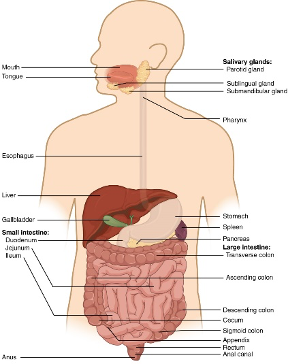Forkhead box transcription factors of the class O (FOXO) are a family of proteins that play important roles in various physiological processes in the human body, including metabolism, stress resistance, apoptosis, autophagy, and longevity. As transcription factors, the FOXO proteins bind to specific DNA sequences and regulate the expression of target genes. In humans, there are three FOXO proteins: FOXO1, FOXO3, and FOXO6, all important players in the human antioxidant milieu.
FOXO roles
One of the main roles of FOXO proteins is the regulation of metabolism. While FOXO1 has been shown to regulate glucose metabolism and insulin sensitivity in cells, FOXO3 is mostly involved in the regulation of fatty acid breakdown and consequent energy production. Metformin, one of the mainstay drugs used in diabetes management and which has been recently gaining popularity in the longevity circles, actually works via targeting the FOXO1 gene.

In addition to their role in metabolism, FOXO proteins also play a role in stress resistance. When cells are exposed to stress, such as oxidative stress or DNA damage, FOXO proteins are activated, leading to the expression of genes that help cells repair or remove damaged DNA. Whereas FOXO1 has been shown to be involved in the regulation of DNA damage repair, FOXO3 is mostly involved in the regulation of the oxidative stress response to DNA damage.
Another important role of FOXO proteins is in the regulation of apoptosis, or programmed cell death. FOXO3 takes the stage again as it has been shown to be involved in the regulation of apoptosis in cells, reason for which it has been suggested as a potential target for cancer therapy. FOXO1 and FOXO3 are also involved in the regulation of autophagy, a process by which cells recycle and degrade their own cellular components. More on this in an upcoming article.
Cherry on the cake
In addition to their roles in metabolism, stress resistance, apoptosis, and autophagy, FOXO proteins are also involved in the regulation of longevity. FOXO3 activation extends lifespan in animal models, and has been suggested to be a potential target for interventions to promote healthy aging in humans.

FOXO variation and ‘fixes’
There are several genetic predispositions, or single nucleotide polymorphisms (SNPs), that can affect the antioxidant role of FOXO in the body. Both the rs2802292 SNP in the FOXO1 gene and the rs2802293 SNP in the FOXO3 gene have been shown to be associated with increased risk of type 2 diabetes and reduced insulin sensitivity.
As with other positive adaptations, lifestyle and nutrition can play a role in regulating the antioxidant impact of FOXO in the body. A healthy diet that is rich in fruits, vegetables, and whole grains can help to support the antioxidant roles of FOXO proteins, as these foods are rich in antioxidants themselves. Exercise can also be beneficial, as it has been shown to increase the activity of FOXO proteins and promote healthy aging.
Several supplements may also be beneficial for regulating the antioxidant impact of FOXO in the body. One example is resveratrol, a compound found in red wine that has been shown to activate FOXO3 and promote healthy aging. Other supplements that may be beneficial include curcumin, a compound found in turmeric, and omega-3 fatty acids, which have been shown to have anti-inflammatory effects and promote healthy aging. More exotic supplements like magnolia and willow bark are more specific to the impact on autophagy, but more on these later.

As you can infer already these are really foxy genes and their proper functioning are an additional layer of genetic and metabolic optimization that we focus on. Fox your way through: check out your FOXOs and help them help you. Foxy, ain’t it?











